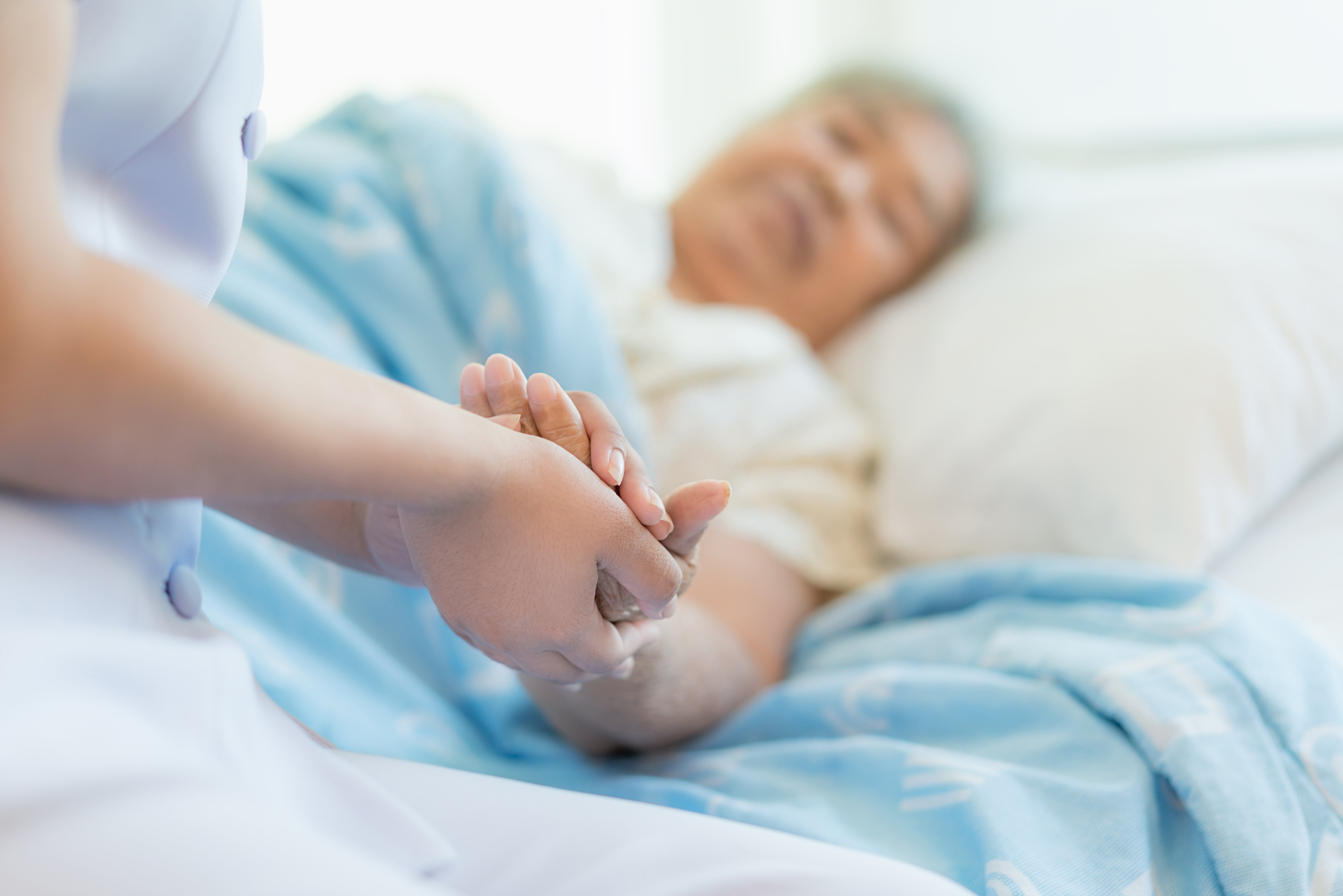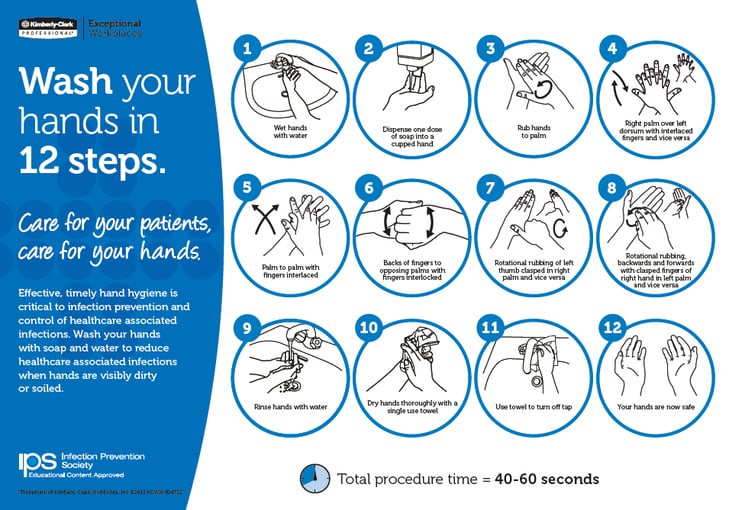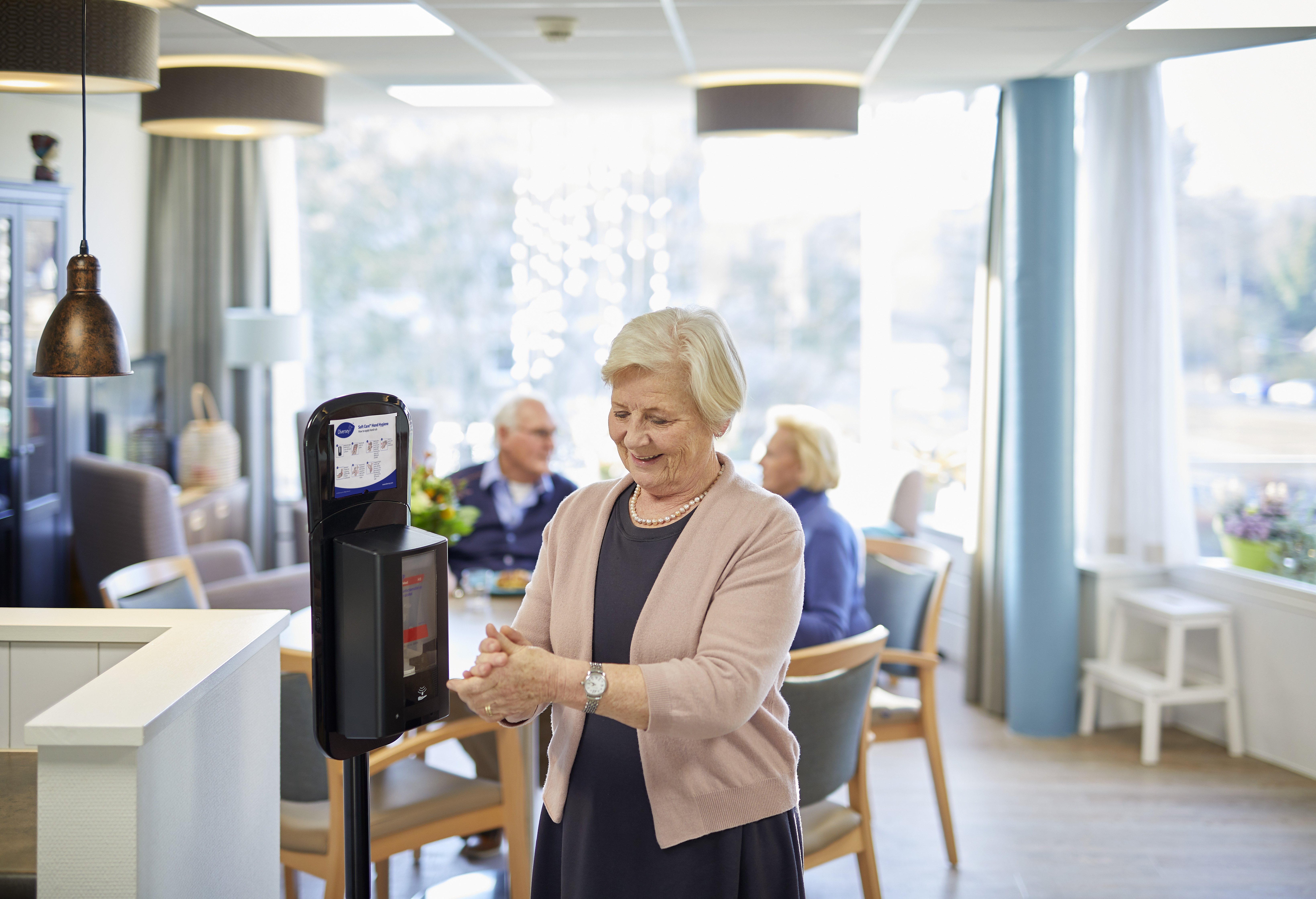INFECTION CONTROL IN CARE HOMES

All staff in a care home have an important role in prevention and control of infection which is an integral quality issue in the care of residents and the health and safety of staff. All staff need to maintain a high standard of infection control as a matter of good practice.
Hand Hygiene
According to the Department of Health, Hands should be washed before and after all care procedures and handling of food, also after dealing with used linen, waste and body fluids or contaminated equipment and after removing gloves. The correct technique for washing hands within care homes can be seen below. Antiseptic handwash can provide residual activity on the hands following handwashing and is useful when an increased level of hand decontamination is necessary. Gloves must be worn when there is a possibility that your hands will have contact with blood or other body fluids or organic matter such as faeces. Gloves should be changed after contact with each patient and at the end of each procedure.

Sinks/Drains
Care Home sinks can be a breeding ground for a number of different pathogens and biofilms. A recent study showed that handwashing in sinks in hospitals accounted for just 4% of behaviours in sinks. Over 56 other materials were disposed of down the sink including IV bags, tea and coffee, and milk-based products. This not only means a high chance of blockages and slow drainage which can increase the chance of bacteria growth, but also sinks can be colonized with harmful bacteria like Carbapenemase Producing Enterobacteriaceae (CPE) which are bacteria or ‘bugs’. These bugs can be passed on from person to person after touching contaminated surfaces like toilets, sinks and bed rails. These bacteria can cause infections if they get into parts of the body like the bloodstream. Similar behaviours are thought to be going on within Care Homes.
Using enzymatic solutions can help to kill bacteria living in sinks and drains.
General Cleaning/Disinfection
Micro-organisms are always present in a Care Home environment and all staff has a responsibility to ensure that inanimate objects (e.g. furniture, wheelchairs, re-usable medical devices etc.) in the environment are decontaminated properly to minimise the risk of infection to residents, staff, and visitors. Using general-purpose detergent and warm water (<35C) should precede any method of disinfection of instruments or equipment. Staff undertaking cleaning should always wear suitable personal protective equipment such as disposable gloves and aprons. All cleaning items, like cloths (reusable and disposable), mops, buckets, aprons, and gloves, should be colour coded. This also includes those items used to clean catering departments.
Wightman & Parrish provide health & hygiene products to care homes across the South East of England. Contact one of our Client Managers to find out how we can support you and your business today.
T 01323 445 005
